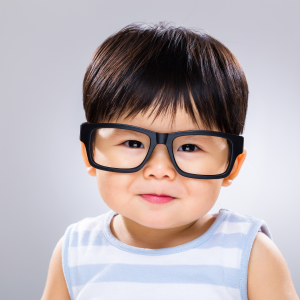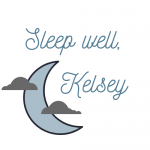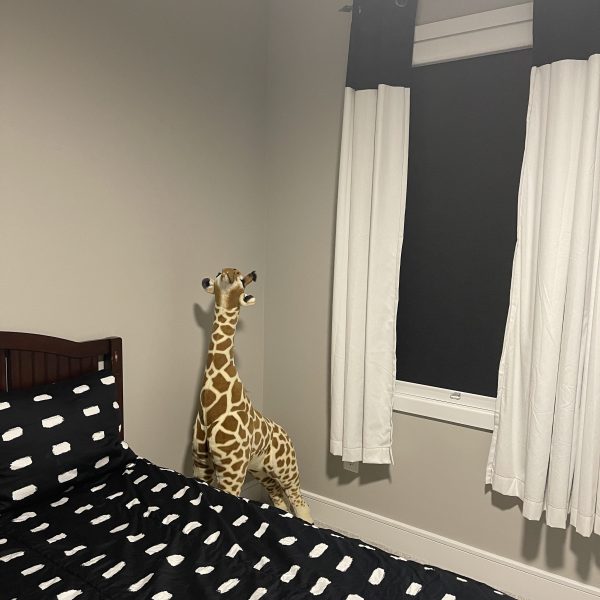
As parents right now one of the biggest concerns many of us have right now is “what type of schooling will be happening this fall?”. The answer isn’t 100% known, but I think we all know that digital screen time is going to be much higher than it ever was pre-pandemic. Even for my 2 and 4-year-old there is virtual little gym, music together, and facetime with grandparents.
In April, Gallup reported 83% of U.S. school-age children were learning remotely through school-sponsored online distance education as at least 43 states and Washington, D.C., ended in-person classes for the remainder of the academic year. As if children’s screen habits weren’t already a concern for sleep-related issues!
Enter blue light blocking glasses! The perfect solution right? Well, let’s have a look at the evidence before you jump to buy your kids an adorable pair of warby parker lenses.
According to the American Optometric Association (AOA), while the light emitted by personal electronic devices is not bright enough to damage the human retina, it is able to stimulate blue-light-sensitive ganglion cell photoreceptors that regulate circadian rhythms.
To date, the best pediatric research has been in adolescents and younger athletes. What we know is that, in small adolescent studies, compared with clear lenses, blue light blocking lenses significantly help with LED-induced melatonin suppression in the evening and subjective alertness before bedtime (van der Lely S, Frey S, Garbazza C, et al., 2015). In recreational athletes, ages 18 through 32 years results indicate that blocking short-wavelength light in the evening, as compared to habitual light exposure, significantly shortened subjective sleep onset latency, improved sleep quality, and increased alertness the following morning (all subjective measured obtained by subjects), but actigraphy (watch to measure sleep) showed no significant differences between conditions (Knufinke M, Fittkau-Koch L, Møst EIS, Kompier MAJ, Nieuwenhuys A., 2019).
So is it a placebo? Not completely. It’s likely the people wearing (or thinking they may be wearing) the blue light blocking glasses actually do want to improve their sleep habits and are paying attention to their sleep hygiene. Overall monitoring the things you do right before sleep is a great way to help decrease sleep onset time and sleep quality.
Up to this point, there has been very little evidence and research into the use of blue light blocking lenses/glasses for younger children, and remember that children are not just little adults. That said we are also in a time of unprecedented types of education and social interaction for our littles and we need to start doing more research to understand what benefits these lenses may provide.
Here are my final thoughts:
- For teens and adults, there is some evidence showing us that using these glasses can help keep melatonin where it should be and not suppressing it. If you already have insomnia or a delay in your body clock rhythm then these glasses may be something to add on to other healthy sleep habits.
- For younger kids talk over the risk with their eye doctor if they already have underlying eye issues. What we don’t want to do is add more strain to the eye through the additional blue light. Evidence is not strong enough to recommend the use of these glasses at this time for every child.
- The most important part is to try to keep screen time earlier in the day, turn off all devices and TV within 1 hour of bedtime, and try to keep sessions or TV time < 20 minutes or at least take a break from the screen every 20 minutes to look at something 20 feet away for 20 seconds. (This will help your eyes relax.)

References:
Blue Light impact in children: https://www.aoa.org/Documents/OptometryCares/Blue%20Light%20Impact%20in%20Children.pdf
Knufinke M, Fittkau-Koch L, Møst EIS, Kompier MAJ, Nieuwenhuys A. Restricting short-wavelength light in the evening to improve sleep in recreational athletes – A pilot study. Eur J Sport Sci. 2019;19(6):728-735. doi:10.1080/17461391.2018.1544278
Van der Lely S, Frey S, Garbazza C, et al. Blue blocker glasses as a countermeasure for alerting effects of evening light-emitting diode screen exposure in male teenagers. J Adolesc Health. 2015;56(1):113-119. doi:10.1016/j.jadohealth.2014.08.002

